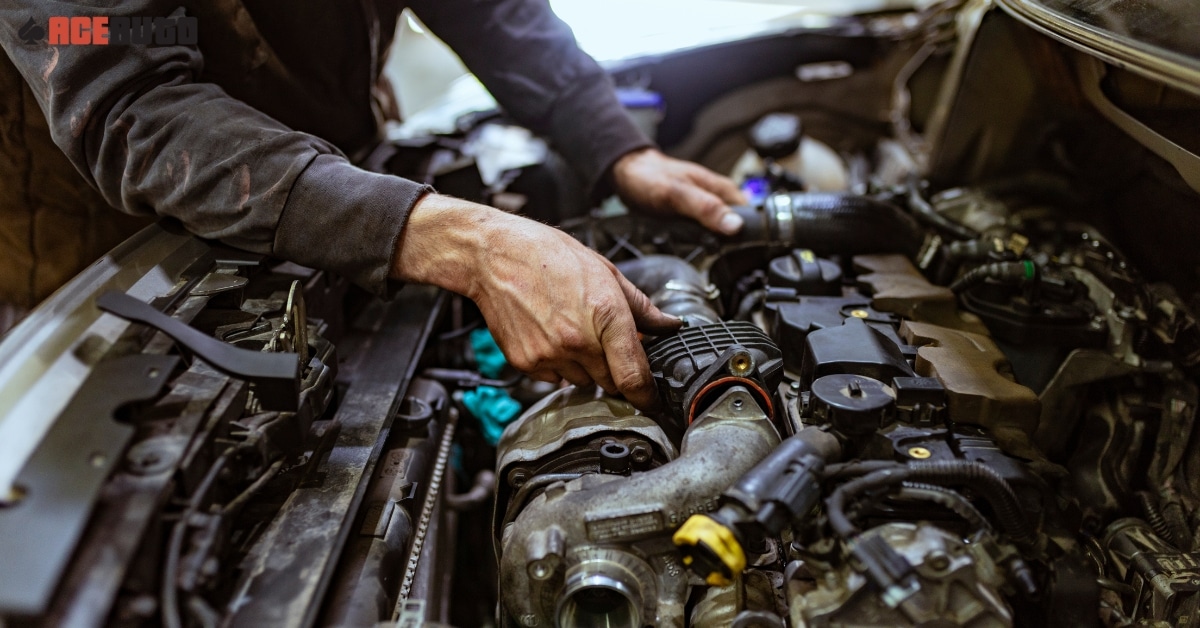All Categories
Featured
Routine engine tune-ups are essential for preserving your automobile's performance, enhancing fuel efficiency, and extending its life expectancy. Whether you're a seasoned auto owner or a novice, comprehending the crucial aspects of an engine tune-up can assist you keep your automobile running smoothly for many years. Right here are some necessary suggestions to lead you with the process.
- Adjustment the Flicker Plugs. Spark plugs are small however mighty parts that play a critical role in firing up the fuel-air mix in your engine. With time, they can use out or come to be fouled, causing poor engine efficiency, lowered gas efficiency, and hard starts.
During a tune-up, examine your ignition system for wear and replace them as required. For the majority of lorries, ignition system ought to be changed every 30,000 to 100,000 miles, depending on the type and product. Fresh ignition system ensure reliable combustion and smoother engine operation.
- Evaluate and Change the Air Filter. The air filter is your engine's very first line of defense versus dust, debris, and various other impurities. A stopped up or dirty air filter can limit air flow, creating your engine to function tougher and eat even more fuel.
Check your air filter throughout a tune-up and replace it if it's unclean or previous its advisable service interval. A tidy air filter improves engine performance and enhances gas economic climate.
- Inspect the Gas System. In time, your gas system can accumulate dust and carbon down payments, reducing engine performance and gas effectiveness. Cleaning the gas injectors and fuel lines during a tune-up assists maintain appropriate fuel delivery and burning.
You can use a fuel system cleaner or have a professional mechanic do a more extensive cleaning. This step is specifically useful for older cars or autos regularly driven in stop-and-go traffic.
- Evaluate the Belts and Tubes. Belts and hose pipes are crucial for numerous engine features, such as running the generator, water pump, and cooling. During a tune-up, check for fractures, fraying, or signs of endure these components.
Change any type of worn-out belts and pipes to prevent potential malfunctions. A broken belt or dripping tube can cause engine overheating or loss of power, so attending to these problems without delay is important.
- Change the Engine Oil and Oil Filter. Engine oil is important for lubing moving components, reducing friction, and managing engine temperature. Gradually, oil comes to be polluted and sheds its performance.
As component of a tune-up, change the engine oil and oil filter. Make use of the type of oil recommended by your vehicle's maker and stay with the recommended adjustment periods. Tidy oil maintains your engine running smoothly and stops early wear.
- Evaluate the Battery and Charging System. A healthy and balanced battery is important for starting your automobile and powering its electric systems. Throughout a tune-up, examine the battery's voltage and evaluate the terminals for rust. Tidy the terminals if needed and guarantee a protected connection.
Furthermore, test the alternator and charging system to guarantee your battery continues to be billed during procedure. If your battery is weak or old, think about replacing it to prevent unanticipated failures.
- Flush and Refill the Coolant. The cooling system controls your engine's temperature, avoiding it from overheating. Old or contaminated coolant can lose its performance, causing prospective engine damages.
During a tune-up, purge the old coolant and replace it with a fresh mixture. Check the radiator, thermostat, and tubes for leakages or damages. Keeping the cooling system in good condition guarantees your engine runs at the appropriate temperature.

- Address Caution Lights and Uncommon Signs. Modern cars are furnished with diagnostic systems that inform you to possible concerns via dashboard caution lights. If your check engine light or any type of various other alerting indicators get on, address them throughout your tune-up.
In addition, pay focus to uncommon signs and symptoms such as unusual sounds, harsh idling, or lowered gas performance. A professional auto mechanic can detect and deal with these issues throughout the tune-up process.
- Do Not Forget the Exhaust System. Your car's exhaust system removes hazardous gases from the engine and ensures appropriate exhausts. Check the exhaust system for leaks, rust, or damages throughout a tune-up. A faulty exhaust system can affect engine efficiency and result in environmental and safety and security issues.
- Usage High-Quality Components and Fluids. When changing components or rounding off liquids during a tune-up, always choose top notch products that fulfill your car's requirements. Using poor parts or wrong liquids can adversely affect your engine's performance and long life.
Conclusion: Regular Tune-Ups Are Secret to Engine Wellness. Making the effort to tune up your engine ensures it operates efficiently, conserves gas, and reduces the risk of break downs. Whether you execute these jobs yourself or count on a relied on auto mechanic, routine tune-ups are an investment in your car's reliability and long life. Follow these pointers, and you'll take pleasure in a smoother, much more reputable trip for many years ahead.
Latest Posts
Montclare Auto Repair: A Reliable Auto Service Provider in Montclare
Yesterday's Tavern: A Hub of Music and Success
Business Roof Services by Weathercraft Firms